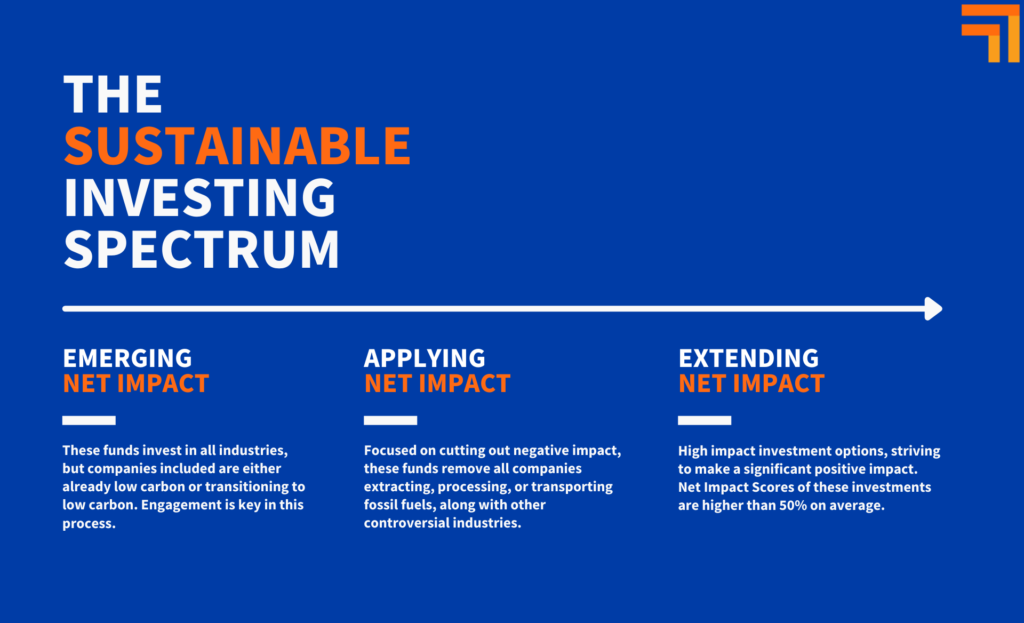If you’re looking to add values-aligned investments to your portfolio this year, here’s how to broach the conversation
It’s 2022. Do you know how your investments align with your values?
No? Then it’s definitely time to have a chat with your portfolio manager.
According to Genus Portfolio Manager/Partner Sue Talbot, questions and conversations about values-based investing are still relatively new in wealth management circles. “Values-aligned investing is a concept that has come up in the last five to six years,” she says. “But it’s on everyone’s radar now.”
A few years ago, Talbot says, ESG investing was all about the E (for Environment). But the past couple of years have seen equal focus placed on the S and G (for Social and Governance).
“I think this has a lot to do with the pandemic,” she says. “It’s a perfect storm that has highlighted racial injustices, social injustices and has pushed the focus onto social and governance issues.”
“The pandemic has led the conversation to ‘how can I contribute in some positive way to solve some of these problems?’ Looking at their investments is a good opportunity for people to reassess and ask ‘what can I be doing differently’?”
– Sue Talbot, Portfolio Manager/Partner, Genus
As investors consider how to make an impact with their investments, numerous options have arisen ranging from fossil-free portfolios, which screen out negative-impact companies, to impact investments, which align with the UN’s sustainable development goals.
So which is right for you?
The Sustainable Investing Spectrum

Investors who are interested in exploring their ESG investment options typically come to us with questions like these:
“I care about _______ (climate change / renewable energy / sustainable cities / empowering women / clean drinking water, etc.) How can I reflect that in my investment portfolio?”
Or conversely:
“I don’t want to support companies that are _______ (polluting / supporting fossil fuel industries / contributing to poor health / ignoring diversity, equity and inclusion, etc.) How can I ensure they’re not represented in my investment portfolio?”
We work with clients to discover where along the sustainable investing spectrum they feel most comfortable. We look at ESG investing as a journey that starts with awareness and divestment, and progresses to impact investing. Any investor can start anywhere along the spectrum, as long as it aligns with their goals, priorities and values.
We consider these three points on the spectrum as our guide to aligning investments with personal values:
- Emerging Net Impact: These funds invest in all industries but companies included are either already low carbon, or transitioning to low carbon. A good option for those who are interested in transition rather than divestment.
- Applying Net Impact: Focused on cutting out negative impact, these funds remove all companies extracting, processing or transporting fossil fuels, along with other controversial industries. A good place for investors who know exactly what they don’t want to invest in.
- Extending Net Impact: High impact investment options, striving to make a significant positive impact. Net impact scores of these investments are higher than 50% on average. A good place for investors who want to use their investments to power positive change.
When Talbot meets with her clients, for example, she asks a series of questions to help determine where along the spectrum they sit.
Before your meeting with your wealth manager, consider these questions as a guide to better aligning your investments with your values:
- Do you want your investments to be consistent with your values?
- Are there any industries you don’t want to be invested in?
- Are there any specific companies you don’t want in your portfolio?
- What type of positive impact do you want to have through your investments? For example, do you want to include companies that provide solutions to challenges such as climate action, renewable energy, gender equality, good health and well-being?
The Role of Risk in Sustainable Investing
Once your values are defined, we need to ensure they align with your financial goals, such as risk tolerance and expected rate of return. And sometimes they simply don’t align.
Balancing your values alignment with your financial goals is extremely important. And once our clients are aware that their portfolio is being managed based on their values, they become better informed investors – more interested in their holdings and with a deeper understanding of their investment strategy.
Whatever your specific sustainability and impact interests, there are many ways you can positively affect change with your investments. The first step is having a conversation with your portfolio manager to figure out the right fit for you.
Interested in exploring how sustainable investing can work for you? Talk to a Genus Advisor today.











